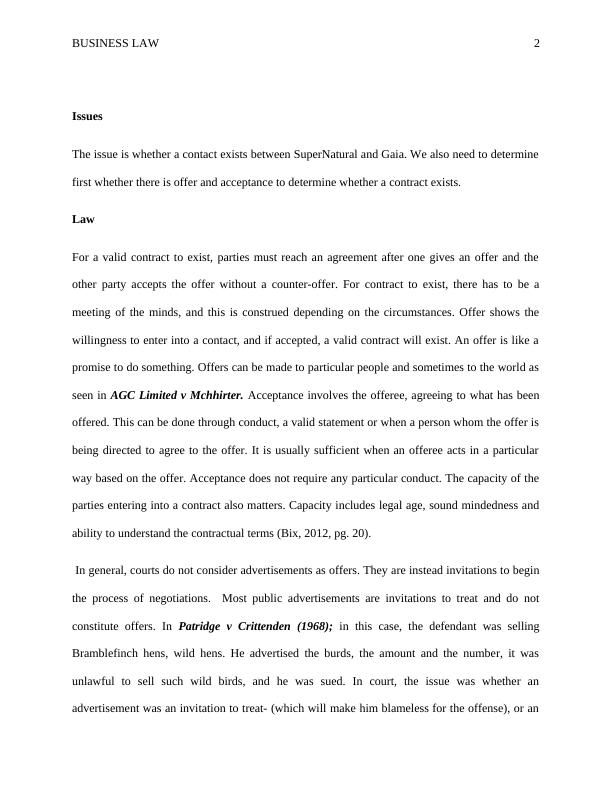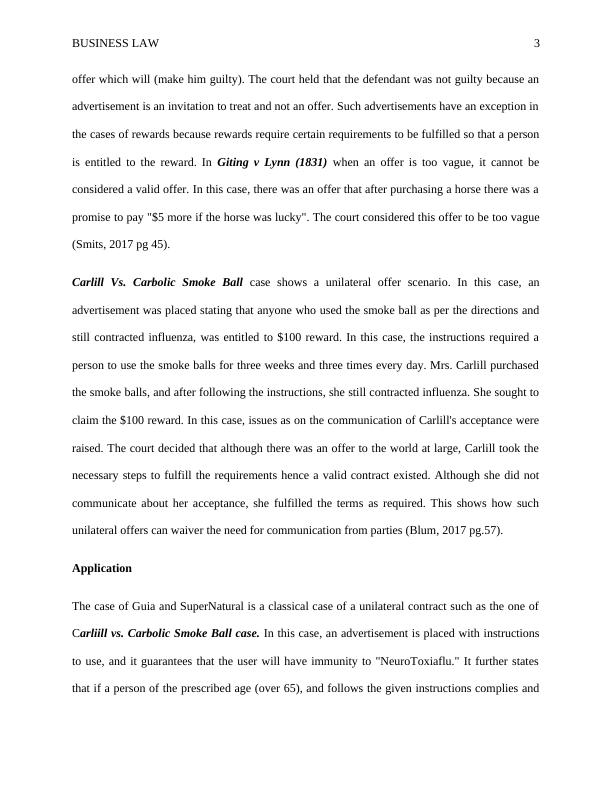Understanding Unilateral Contracts in Business Law
20% Assessable ILAC Problem Scenario on a herbal medicine business and the development of a new product called Flu-Defeat.
7 Pages1954 Words459 Views
Added on 2023-06-15
About This Document
This article discusses the concept of unilateral contracts in business law and their application in real-life scenarios. It explains the requirements for a valid contract, including offer, acceptance, and capacity. The article also explores the role of intent and consideration in unilateral contracts and provides examples from case law. The subject is business law, and the course code is not mentioned. The course name and college/university are not mentioned either.
Understanding Unilateral Contracts in Business Law
20% Assessable ILAC Problem Scenario on a herbal medicine business and the development of a new product called Flu-Defeat.
Added on 2023-06-15
ShareRelated Documents
End of preview
Want to access all the pages? Upload your documents or become a member.
The Carbolic Smoke Ball Case: Facts, Arguments, and Conclusion
|9
|616
|462
Corporations and Business Law
|9
|2231
|197
How to Brief a Case - Carlill v Carbolic Smoke Ball Company
|6
|733
|209
Remedies for Breach of Contract: Legal Advice for Adam vs Edwin
|13
|4702
|458
Legal Issues in Business Law and Company Structure in Australia
|8
|2357
|65
Enforceable Contract between Leila and Julie
|8
|1719
|310



